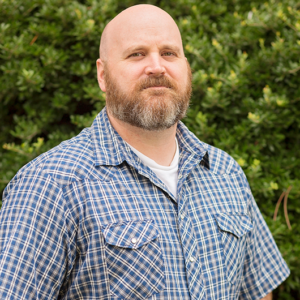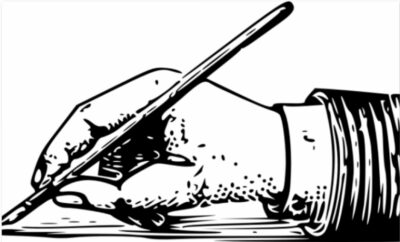
Christmas is the time of year when everyone seems a little happier and are a little nicer to each other. It is when we look forward to spending time with family and friends enjoying all of our favorite Christmas traditions. Yet, historically speaking, this was not always the case. Especially in America, we did not celebrate Christmas until the 1820s with the publication of a couple of important novels.
What was originally called the Feast of the Nativity reached England in the sixth century and began being called Christmas. Don’t think of it as the same holiday as we celebrate today. It was more a drunken party similar to Mardi Gras or Halloween than Christmas. It was gangs of poor going door-to-door demanding gifts. Think of some early Christmas carols. In “Here We Come A-Wassaling” there is the line, “We are not daily beggars that beg from door to door; but we are neighbours’ children, whom you have seen before.” In “We Wish You a Merry Christmas,” we sing about going house to house basically demanding food.
This debauchery at Christmas played a part in America’s founding. The radical religious sect known as the Puritans wanted to rid the Church of England of all things Catholic, including the pagan practices that had crept into the Church. One of those practices was Christmas.
There is no mention of Christmas in the Bible and no set date for the birth of Jesus. The Catholic Church had set Christmas during the winter solstice to help convert the Germanic tribes by claiming their religious feasts.
The practice of Christmas was one of many doctrinally differences that led the Puritans to the New World to set up their “City on the Hill.” With Puritanism being one of the most influential institutions in American culture, Christmas was not practiced in the colonies. During and after the Revolutionary War, many British practices, including Christmas, were seen as taboo. In fact, Christmas does not become an official American holiday until 1870.
Christmas as we know it comes in the 1820’s because of two important works of fiction (reading really does change the world). America’s first great author was Washington Irving. We had many writers at that point, but they mimicked British writing. Irving was the first to write something uniquely American.
In 1819 he wrote The Sketchbook of Geoffrey Crayon, Gent that includes some of his most famous stories such as “The Legend of Sleepy Hollow” and “Rip Van Winkle”. The one entitled “Christmas” showed an English squire inviting peasants into his home for Christmas.
Irving believed Christmas should be a peaceful time where all classes could live in harmony. In his story he invented ancient customs such as family members returning from far away “once more to assemble about the paternal hearth, that rallying-place of affections.”
The second book, of course, was The Christmas Carol by Charles Dickens. This 1843 novel, even more than Irving, shaped our current idea of Christmas. The message of charity and good will to all struck a chord in America. I don’t have room to discuss this here, but childhood had only recently become a thing. Before, children were just small adults. Now with childhood, parents had a day to lavish their children with gifts without appearing to spoil then.
Reading these stories, Americans came to assume this is how Christmas was supposed to be. Christmas quickly became seen as a family holiday, with peace towards all firmly part of the Christmas celebrations.
Being my last article of the year, I want to give a quick thanks to everyone who makes Historically Speaking possible. A huge thank you to my wife Melissa Finck and Dr. JC Casey who edit all my stories. I could not do this without them. I now have a student assistant who does all the distribution. So, thank you Chris Wilson. Thank you to the editors who run these stories. Lastly, thank you to all the readers, especially those who have sent me positive feedback. I put a great deal of time into these stories and it makes it worth it knowing so many of you enjoy them.
I hope this season does bring you the happiness that Ebenezer Scrooge and Irving’s English squire found in their lives. From my family to yours, we wish you a Merry Christmas.
Dr. James Finck is an Associate Professor of History at the University of Science and Arts of Oklahoma and Chair of the Oklahoma Civil War Symposium. Follow Historically Speaking at www.Historicallyspeaking.blog or Facebook at @jamesWfinck.

